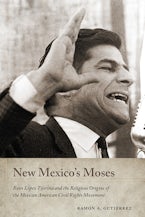
Second-Generation African Pentecostals in the West
270 Pages
- Hardcover
- ISBN: 9781532697746
- Published By: Wipf & Stock
- Published: January 2021
$47.00
Pentecostalism has in recent years elicited a lot of interest from scholars and commentators as an emerging trend in World Christianity. In the book Second-Generation African Pentecostals in the West: An Emerging Paradigm, Caleb Opoku Nyanni sorts through the heated and stimulating debates concerning the growth and development of Pentecostalism in a continent that has imbibed this form of Christianity, adapted it to African cultures, and exported it as African migrants into their lands of sojourn in the West. Attentive to youth sub-culture and desires, Nyanni acknowledges the extreme popularity of African Pentecostal and charismatic churches and the significance for African youths beyond their homeland.
This 251-page volume is a stimulating combination of paradigmatic religious, social, cultural, and intellectual issues divided into an introduction and eight analytical chapters. The book focuses on children of the first-generation (FG) of the Church of Pentecost (CoP-UK) in the United Kingdom—a Ghanaian church in the UK founded by James McKeown, an Irish missionary who was the first Pentecostal missionary in Ghana (former Gold Coast). In the background, these Ghanaian migrants in the UK jointly established CoP-UK within the Ghanaian socio-cultural and religious life. Through critical analysis and synthesis, Nyanni tries to understand the conflicting realities of second-generation (SG) CoP-UK who in the Global North have had to interface their roots as Ghanaians with the culture of their migrant community.
Nyanni then clinically provides a clear study of the generational friction in an African diasporic community in the Global North, perhaps, the first of its kind. From interrogating the FG and SG interactions at the CoP-UK, Nyanni encountered the methodological difficulty of ascertaining the number of SG members who left the church as there were no records. He also revealed that there was difficulty concluding that many youths left the church for the sole purpose of the overemphasis on the "spirit factor". Nevertheless, he observed the frustration of the SG, which resulted in some of them leaving the church. According to Nyanni, "The crux of the matter is that the church is in transition, and there need to be some meaningful and intentional negotiations between the FG and SG members to enhance the smooth transitioning of the church from one generation to the next" (193).
Nyanni arrived at the above conclusions by utilizing detailed and elaborate qualitative and empirical methods and the extensive consultation of relevant literature. Nyanni initially set the book's tone with the definition of unique concepts. He discusses the spirit oriented Ghanaian worldview that revolves around all aspects of the Ghanaian community life instead of Western individualism. In chapters 2-5, Nyanni developed the connections between the spirits, Christianity, and the generational relationships with Ghanaian belief systems in the diaspora. He analyzes "Ghanaian Christianity and Akan Spirit Beliefs." He begins the narrative by tracing the establishment of Western Christianity in Ghana. These churches preceded the charismatic activities of African Initiated Churches in Ghana. The author states that Pentecostalism has not obliterated the Akan worldview (which holds that there is a hierarchical spirit structure where God is the Supreme being [45]) or calmed innate fears of witchcraft and demonic spirits (68). Nyanni drew his conclusion from the data from the survey and questionnaires administered (227).
What stands out from this data is the generational difference in the "spirit factor"; while a lot of the FG agreed that evil spirits could cause sickness and misfortune in their lives, many of the SG disagreed. Nyanni expounds on the religious practices because of the importance "of the deities and their relationship to the Akan people" (37). One of the interests of the author of this book is "to identify whether the CoP-UK FG still maintain a similar view of God and the spirits as their forefathers did" (37). This is because there is the belief that the Akans, whether Christians or not, believe in the power of the abosom (gods) (36) to the extent that the lines between the secular and the sacred are blurred.
Chapters 6 through 8 articulate the frustrations of the SG with the socio-cultural beliefs of the FG, which are heavily influenced by the Ghanaian worldview. The SG, on the other hand, "identify with British and American socio-cultural values, as well as Ghanaian socio-cultural practices" (171). Of the ideological differences between the FG and the SG, Nyanni observes, “They dislike certain CoP practices, and beliefs, especially the ones associated with the Ghanaian religious practices which they feel is AF (archaic) and irrelevant to them. For example, on the one hand, most of the SG enjoy dancing with various Ghanaian dance moves. Yet, on the other hand, they complain about long sermons and long prayer services with too much emphasis on breaking demonic strongholds. Their disengagement with such practices and beliefs can arguably be attributed to the influence of the media in the globalized society” (171).
The book is well written and well researched. The research framework was judiciously executed and laid out in the book's appendixes (205-229). It is an excellent and significant contribution to the burgeoning literature on youths and World Christianity. In this carefully researched and well-argued examination of this religious phenomenon, the author, has produced valuable source material for scholars of religious studies, sociology, history, and other humanities and social sciences disciplines.
However, including an index page would have added more value to the reader's grasp of the work. Nevertheless, Second-Generation African Pentecostals in the West: An Emerging Paradigm fills a critical gap in the knowledge of youths and World Christianity in a global age.
Oluwakemi A. Adesina is the Yang Visiting Scholar of World Christianity (2021/22) at Harvard Divinity School, Harvard University.
Oluwakemi Adesina
Date Of Review:May 9, 2022
Caleb Nyanni is the academic dean of Birmingham Christian College, UK. He is also an ordained minister with the Elim Pentecostal church, UK.











